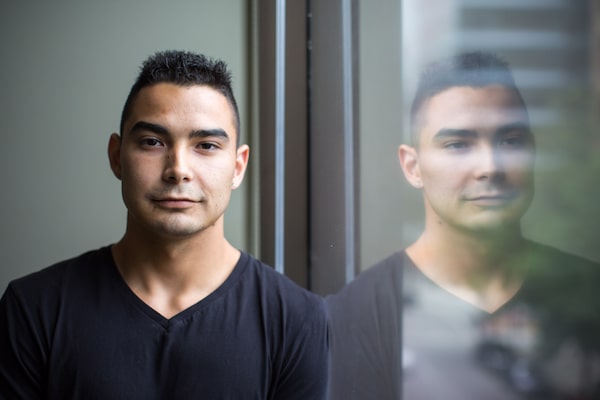
Josh McDearmid is seen at the B.C. Centre on Substance Use in Vancouver on July 18, 2018.BEN NELMS/The Canadian Press
For too long, Josh McDearmid didn’t realize recovery was an option.
By his early 20s, the Cree man was firmly in the grips of a cocaine, cannabis and alcohol addiction, living in a tent city on Vancouver’s Downtown Eastside. He stumbled through life – using, in withdrawal, fighting, in and out of hospital – believing this is how things would always be.
“When I was out on the streets using [various] resources – going to shelters, food lineups, youth resource centres – they would see me messed up, intoxicated, every day, and not once did they mention recovery to me,” Mr. McDearmid said.
Mr. McDearmid’s thinking from those days is not uncommon. On Wednesday, the B.C. Centre on Substance Use (BCCSU) issued a report on expanding and improving addiction-recovery services in the province, noting consultations with hundreds of people with lived experiences of addiction found that many wrongly believed effective treatment and recovery were simply unrealistic.
The report emphasizes the need for recovery options to be better recognized and recommends a “shift from a provincial health-system approach that has historically focused on harm reduction and acute treatment to an approach that better supports the full continuum of care, from harm reduction through to long-term recovery-oriented, abstinence-based interventions, supports and environments.”
BCCSU director Evan Wood said there is a pervasive misconception that people with addictions are a “lost cause.”
“The research shows that when we’re talking about alcohol addiction, or cocaine addiction, or other substance use addiction, recovery can be an expected outcome in many, many cases,” he said. “Unfortunately, there’s just a chasm between the public’s understanding of this and the scientific reality that this is possible, and that it can be facilitated through evidence-based treatment and recovery supports.”
Some recommendations include supporting policy development to ensure people with substance-use disorders are made aware of all care pathways available when accessing health-care services; establishing recovery community centres in suburban areas across British Columbia; recovery high schools and collegiate recovery programs; and developing a mandatory certificate program for recovery-home operators to ensure a high standard of service.
Dr. Wood said the report will help guide discussions with Judy Darcy, the B.C. Minister of Mental Health and Addictions, on updating addiction-treatment services, but noted change does not fall strictly on the shoulders of government.
“It’s not aimed anywhere; it’s aimed everywhere,” he said, citing health authorities and service providers as others who will receive the report. “I don’t think there is anyone who is particularly dragging their heels. I think in the context of the overdose crisis, everyone wants to do the right thing. But this is a piece of the puzzle that does need some focus and emphasis.”
For Mr. McDearmid, it was through Facebook messaging with a friend from high school that he learned of recovery.
“One day, he told me he was in recovery for an opioid addiction and I was blown away,” Mr. McDearmid said. “He had a family, he had money, care and love and support around him. I would have never thought he’d get addicted to drugs.
“Him opening up to me made me open up to him. I said, ‘I’m not doing good. I’m homeless, I’ve been on the street for a while, I think I’m an alcoholic.’ He said, ‘Dude, come to recovery.’”
That was in the fall of 2016; today, Mr. McDearmid, now 24, is a peer worker at the recovery house he says saved his life.